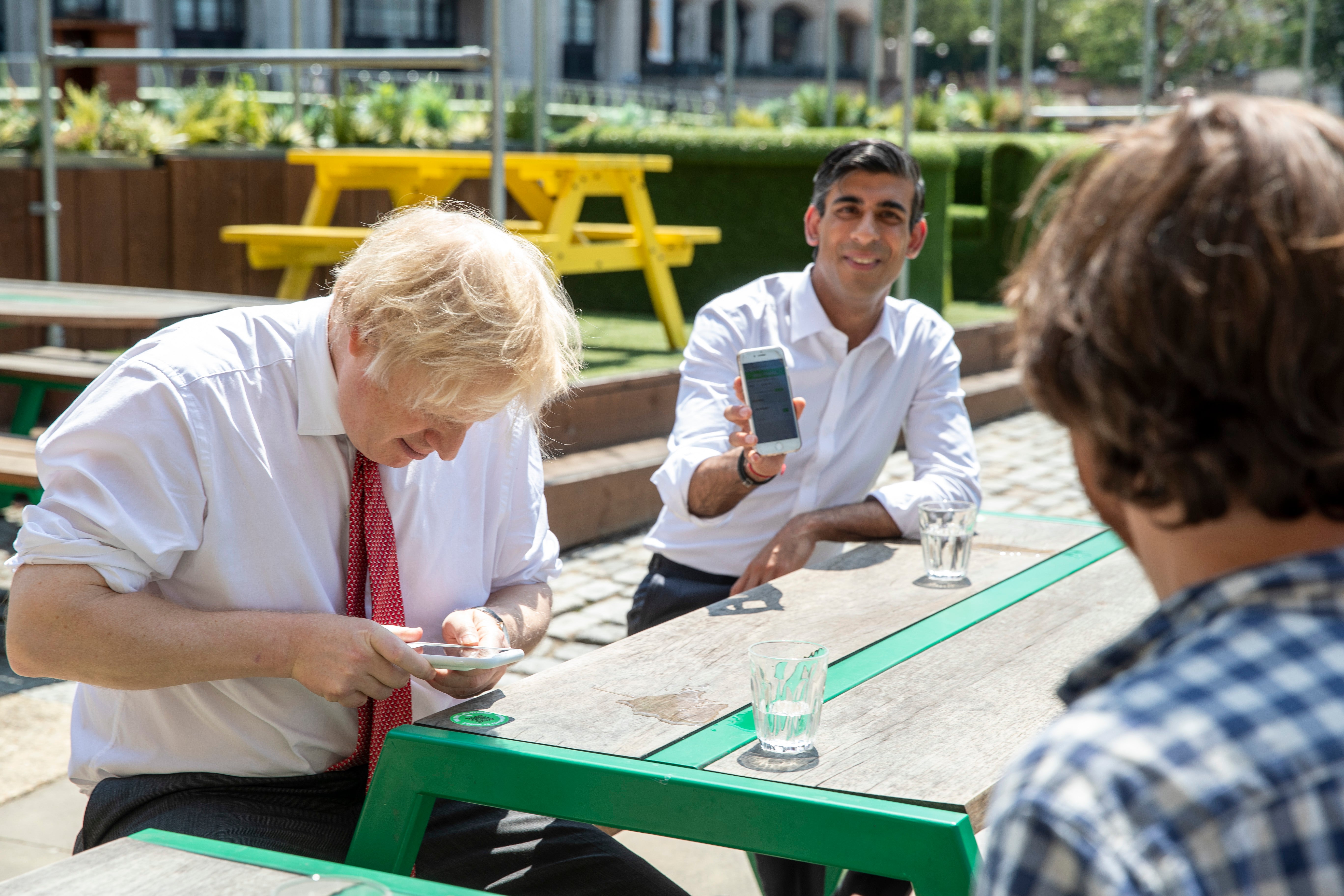Tory MPs might be happy about Whatsapp’s future – should we be worried?
Our WhatsApp chats are filled with plans, memes and distracting groups you can’t get out of. And if you’re a member of the Conservative Party, conversations that are inevitably screenshotted and leaked to the press. But what does the future hold for these inescapable pocket menaces? Tom Ough investigates

A typical WhatsApp user uses the app in the same way that they breathe air and drink water: throughout the day and without much thought. This goes even for Tory MPs, whose correspondence is so frequently leaked that reading it now feels less like being privy to the machinations of the elite and more like being part of a never-ending stag do or hen party group chat that won’t stop dinging and can’t be muted.
The messaging service – founded in 2009 – has 40 million users in the UK. On average, we each spend nine hours on it per month, with those nine hours distributed between brief glances and sporadic bursts of activity. It is not only government that is conducted by group chat, but other central parts of human life: our friendships, our family lives, our exchange of memes. The format of a group chat gives us the liveliness of real-time raillery, but it also inflicts on us the annoyance of unnecessary messaging. A case in point: your five-a-side team’s most reliable blockhead being able to ask “Where are we meeting again?” of 20 people at once. It’s an option he deems preferable to scrolling up.
And because such a high proportion of the population is on WhatsApp, it’s become the default venue for these group chats. The friends of mine who preferred the privacy of Signal have been dragged ineluctably back to WhatsApp; no other instant messaging app has the same gravitational pull.
It is a hegemony of sorts, but hegemonies don’t have to stay the same for ever. This one certainly won’t: WhatsApp, like any form of social media, is continuously being competed with and continually being updated. As of this year, users can now leave group chats without everyone else being notified – thus sparing us the Sophie’s choice between (i) leaving a group and causing a ruckus, and (ii) avoiding the conflict at the price of being entombed in an unwanted chat for eternity. WhatsApp’s disappearing “view-once” messages, which the Tories should definitely be briefed on at some point, will soon prevent most attempts at screenshotting.
So we might as well ask: what’s next for group chats? Are liveliness and annoyance two sides of the same coin? And is there a world in which a prime minister waking up to a pandemic can innocently ask an adviser “Wtf do we do?” without fear of that message being read by everyone in the country?
It’s just as well that Boris Johnson isn’t coming back to Number 10 just yet, because the answer to that last question is: “Obviously not.” Jamie Hurworth, of the law firm Brabners, points out that the forthcoming anti-screenshot protection could be circumvented by someone “using another device” – as Dominic Cummings did with the “Wtf do we do?” message – “to take a photo of the original material.”
Litigation lawyers, says Hurworth, can ask for messages to be handed over, and “forensic IT experts can also become involved in order to analyse or investigate the underlying data in connection with those messages – as was the case in the Vardy v Rooney case we recently worked on.” Don’t imagine that group chats, and WhatsApp in general, will ever be secure; even end-to-end encryption, as the cybersecurity company PQShield points out, will soon be vulnerable to quantum computing. Your data could be stolen today and broken into when the technology allows it.
What might change is interoperability: one messaging service’s ability to interlock with another. Take email, where we seamlessly communicate between Gmail, Outlook and so on. Regulators should enforce interoperability, which is already enshrined in European law, on instant-messaging software, says Amandine Le Pape, who is the co-founder of the secure messaging app Element. “This would make these group chats true forums for communications, enabling users to message each other regardless of which apps they use. Users that don’t want to use for-profit, ads-driven messaging apps would then still be able to communicate with friends and colleagues on WhatsApp.”

What this means for your garden variety group chat user is that they would be able to include friends and family still holding out against WhatsApp. It means those friends of mine who prefer secure apps would be able to stick to that preference, and it means that WhatsApp might lose ground to rivals. (On the other hand, it might make group chats buggier, and could make it harder to build a messaging app from scratch.)
WhatsApp’s “view-once” feature resembles the key function of Snapchat, which is that its users send each other messages that disappear by default. By that token, perhaps we can look at other instant-messaging platforms for clues of what might become the norm in future.
Discord specialises in community-based chat rooms, which means people can use it to interact (by text and audio) with strangers who share their interests as well as with friends. The app Geneva, a recently launched messaging app, shares this emphasis on building community, with users invited to join local groups for supper clubs, adventuring, introverts and so on. Geneva’s group chats include threaded replies (also seen in Slack), polls, and pinned messages (which mean that your bone-headed teammate need not even scroll up in order to be reminded of where the team is next meeting.)
A hegemon like WhatsApp needs to be easy to use for even the most technologically challenged of people – Grandma needs to be able to participate in the family group chat, after all – but as digital literacy rises, we can expect some of these complex features to reach the mainstream, just as gifs did before them.
Other clues come from abroad. Sam Barker, head of analytics and forecasting at Juniper Research, expects instant messaging to allow for an “increasing amount of commerce services to be integrated into the user experience of messaging apps”, enabling users to send each other money or to buy digital or physical content from businesses. “This is something that has grown significantly in China [in the app WeChat] and Japan [notably in the app LINE], but not in Europe,” says Barker. The reason that this hasn’t happened yet, says Barker, is that it would enable a rise of chatbots: automated messages, sent by businesses or just scammers, that ask us for money. But should payment services become integrated into WhatsApp group chats, expect it to become easier to settle up with friends, and easier to get your Tory party colleagues to pay for your Lulu Lytle wallpaper.

This maximalist vision of our group chat future might be seen in some quarters as dystopian. Cal Newport, the computer scientist turned digital minimalist, has written about how our current approach to digital communication – “a never-ending, ad-hoc, unstructured flow of messages” – makes us unproductive and unfocused. A more civilised and less distracting form of group chats might involve fewer, but higher definition, interactions: scheduled calls, video calls or virtual-reality interactions. These will have to overcome the convenience of instant messaging, in which communication doesn’t rely on all parties being free at the same time. The current rate of progress suggests that brain-computer interfaces will at least be an option for consumers sometime in the medium term. In that case, we won’t need to type; technology will infer what we mean to say from the electrical signals transmitted within our brains.
Arguing that instant messaging lacks the emotional cues of expression, tone of voice and body language, scientists at the University of Maryland, Baltimore County, used a gestural and brain-computer interface to “convey and infer affective states, contributing to a rich subjective experience”.
It is a glimpse into the future of group chats – a vision of the future that, on first glance, is startling and unsettling. Yet it is in some ways more humane than the two-bit interactions on which we currently graze.
Join our commenting forum
Join thought-provoking conversations, follow other Independent readers and see their replies
Comments


Bookmark popover
Removed from bookmarks